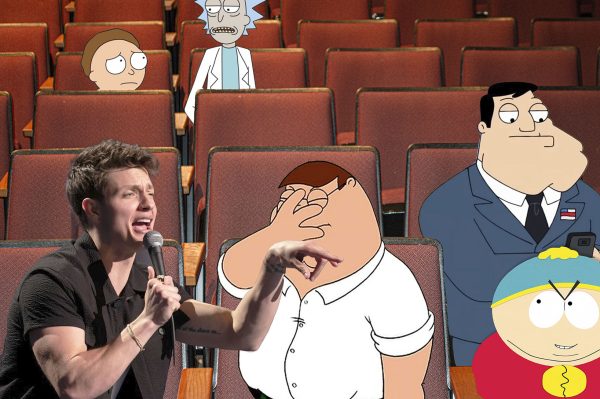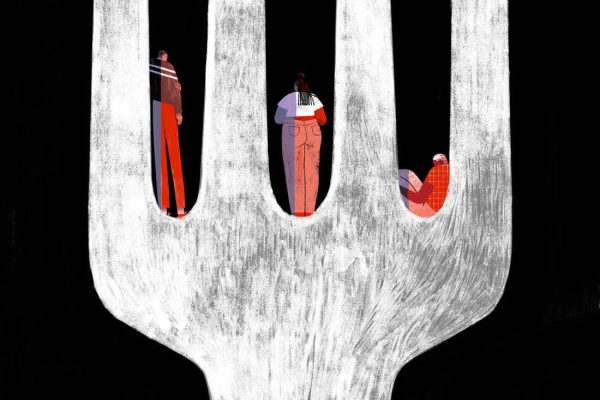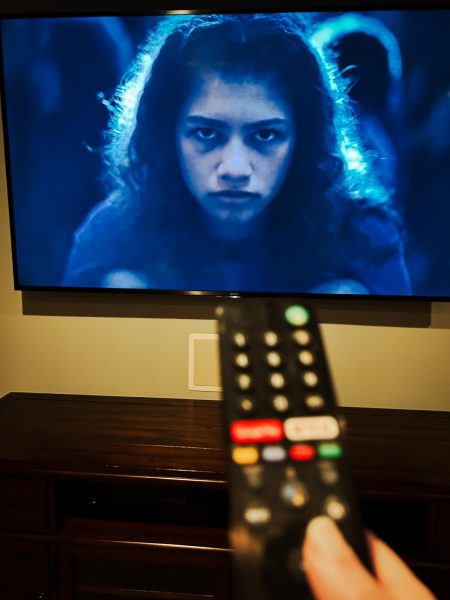The Way We See It
March 4, 2015
Net neutrality—the only two words of the English language that promise more boredom than a ninety minute lecture. If it’s so boring, why does it matter?
Our schooling is now largely internet based. Both students and teachers rely on internet sources in the classroom for teaching the students, turning assignments in, and some even taking it a step further by using the Internet to branch out to the rest of the public community in Hamilton county, such as Project Citizen, or tweeting our mayor, John Ditslear.
Net neutrality is based on the ideas that Internet service providers should give their customers access to all legal content at the same speeds, whether the website is “big and bad,” like Google, or simply a less trafficked site. Another name for net neutrality is “open internet,” which sounds a lot simpler and is easier to understand. Currently, multiple bills are making their way through Congress, addressing the problem in a variety of ways. One set of proposals is designed to prevent big-and-bad companies from overtaking the internet, and these bills would give equal opportunity to the less trafficked sites.
In April of 2014, the Federal Communications Commission (FCC) began investigating a new idea that would have permitted some large internet service providers (ISPs) to offer content providers a faster track to send content. This new rule goes against their earlier position of embracing net neutrality. In May of 2014, the FCC considered two different bills. The first bill would create faster and slower broadband lanes, allowing companies like Netflix to buy their way into the faster lane, which would compromise the idea behind net neutrality. The second bill would reclassify broadband as a telecommunication service, which would preserve net neutrality. President Obama advised the FCC to preserve an even playing field on the internet, and Tim Berners-Lee, one of the pioneers in the creation of the World Wide Web, made his opinion explicit to the FCC— the World Wide Web was created for everyone, for all data, and all of that data is created equally: therefore, net neutrality is needed in order to keep the same values behind the creation of the open Internet.
The Mill Stream applauds the idea of net neutrality, even if it isn’t the best solution to a ever-changing Internet landscape. It will, however, solve the problem of giving people and companies equal footing in terms of Internet speed. The Mill Stream hopes that any future plan put into effect will include the following.
First: Allow customers to choose their Internet Service Provider. Right now, ISPs are set up like monopolies. Comcast, Verizon, AT&T, and Time Warner Cable are the nation’s biggest Internet providers. As much as these providers might be spread out all over the country, records show that 96 percent of Americans have access to two or fewer providers. If we were to turn the Internet providers’ market back into a free market system, with competitive buying, then the system could change for the better.
Our second idea is faster Internet. For being a first world country, our Internet is extremely slow. On average, people wait about six to ten seconds for a web page to load, according blog.kissmetrics.org, and if it takes longer than that, that web page will never get the opportunity to load— the cursor meets the back button and onto the next website we go. With faster Internet speeds, the time difference between the loading time of a website on one broadband lane compared to the other would become negligible.
As much as we do appreciate companies such as Facebook and Amazon backing the net neutrality bill, more can be done to help protect our rights to a free Internet. Hopefully, lawmakers can devise a better plan that will let us keep our Internet freedoms and won’t hurt smaller websites that don’t rake up the views. In the meantime, though, you could check out our website, millermedianow.org. We promise it won’t take six to ten seconds to load.












